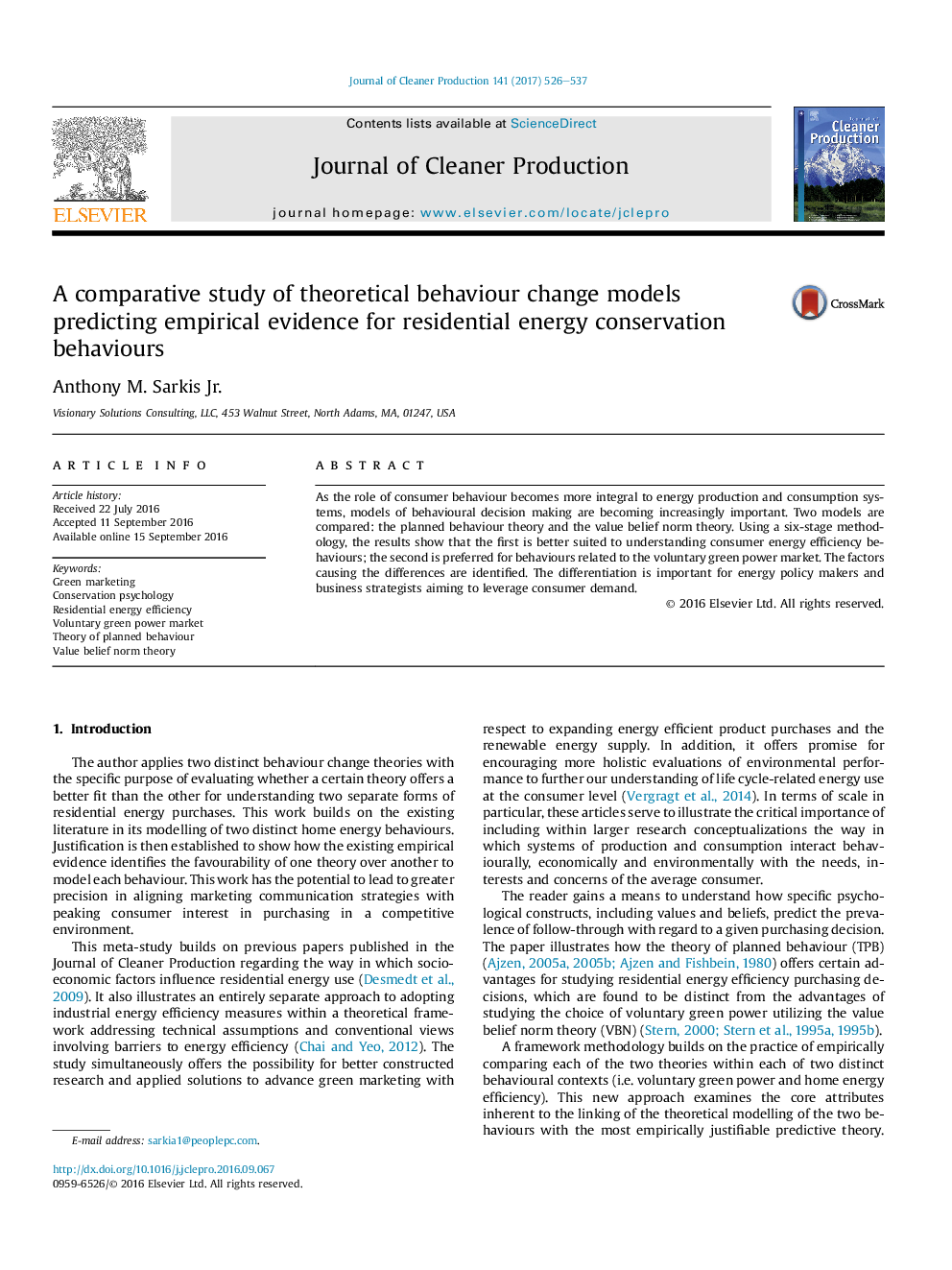| Article ID | Journal | Published Year | Pages | File Type |
|---|---|---|---|---|
| 5481710 | Journal of Cleaner Production | 2017 | 12 Pages |
Abstract
As the role of consumer behaviour becomes more integral to energy production and consumption systems, models of behavioural decision making are becoming increasingly important. Two models are compared: the planned behaviour theory and the value belief norm theory. Using a six-stage methodology, the results show that the first is better suited to understanding consumer energy efficiency behaviours; the second is preferred for behaviours related to the voluntary green power market. The factors causing the differences are identified. The differentiation is important for energy policy makers and business strategists aiming to leverage consumer demand.
Keywords
Related Topics
Physical Sciences and Engineering
Energy
Renewable Energy, Sustainability and the Environment
Authors
Anthony M. Jr.,
